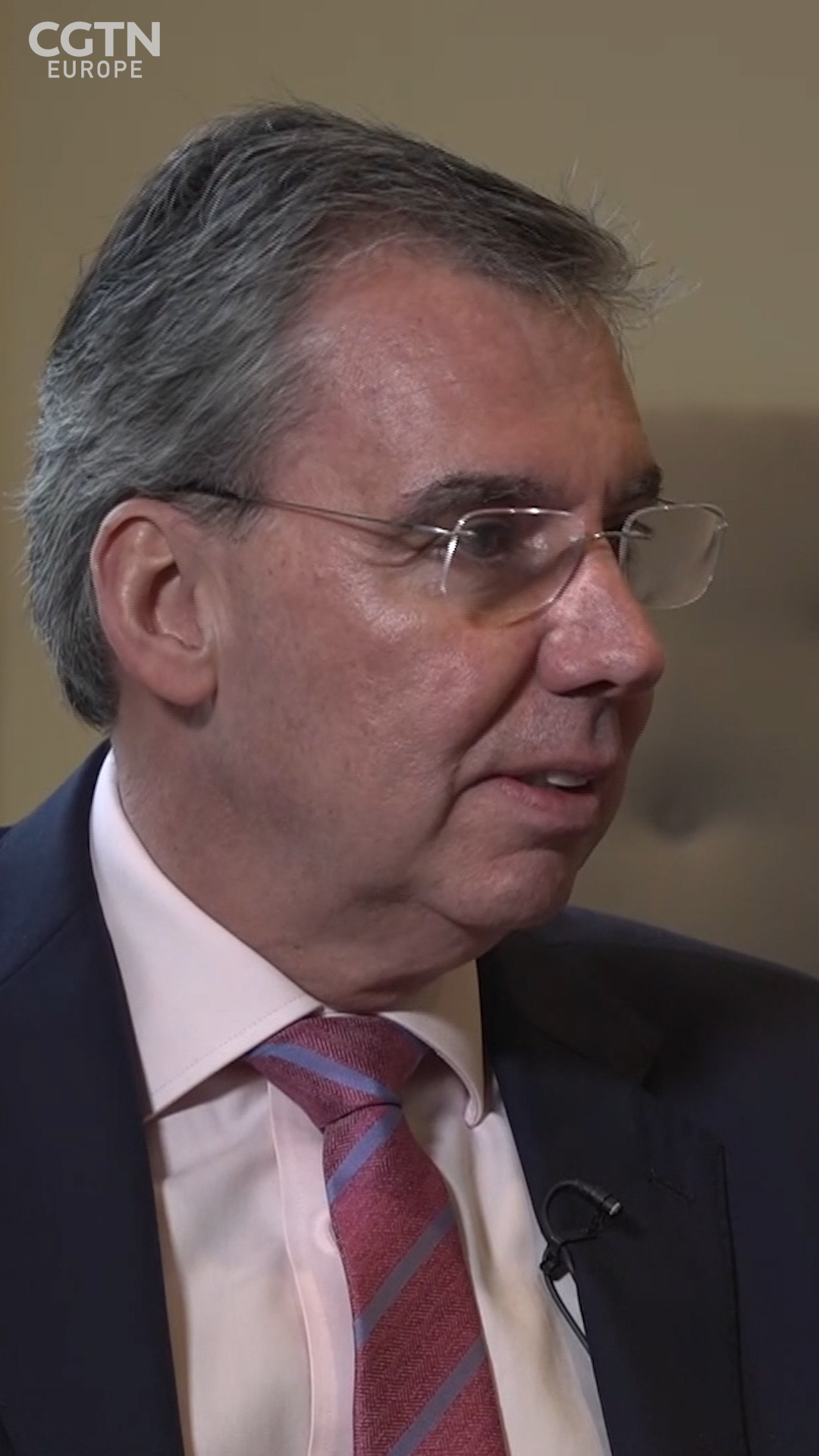01:03

Jeremy Thompson vice president of Huawei UK explains what non-core and core means in 5G systems
The UK's decision to grant Huawei access to its 5G network did not come easily: it took years of intense and sometimes highly acrimonious deliberations.
The Chinese telecoms giant has been the subject of major scrutiny after warnings were issued claiming the company could compromise the national security of Western states.
Britain, while allowing Huawei to partake in creating next-generation cellular technologies, claimed that "high-risk vendors" would be denied access to the sensitive core of networks and won't have more than 35 percent involvement in the non-sensitive parts.
In a statement, Digital Secretary Baroness Morgan said: "This is a UK-specific solution for UK-specific reasons and the decision deals with the challenges we face right now.
"It not only paves the way for secure and resilient networks, with our sovereignty over data protected, but it also builds on our strategy to develop a diversity of suppliers."
Ciaran Martin, the chief executive of the National Cyber Security Centre (NCSC), seconded Morgan. "This package will ensure that the UK has a very strong, practical and technically sound framework for digital security in the years ahead," he said.
"The National Cyber Security Centre has issued advice to telecoms network operators to help with the industry rollout of 5G and full-fibre networks, in line with the government's objectives. High-risk vendors have never been – and never will be – in our most sensitive networks."

The core plays the vital role of routing voice and other forms of data through sub-networks and servers (Credit: AFP)
The core plays the vital role of routing voice and other forms of data through sub-networks and servers (Credit: AFP)
But these assurances might do little to allay concerns on the other side of the Atlantic. The U.S. has long argued that with 5G evolving, the distinction between the "edge" and "core" will gradually disappear, exposing network data to heightened risk of malicious breach and theft.
That brings us to the question. What is the "core?"
In the world of mobile communications, the core plays the vital role of routing voice and other forms of data through sub-networks and servers to the relevant destinations.
In the past, a major chunk of this process required physical equipment including routers and switches. With the advent of 5G, the hardware element has been removed from the matrix, making way for virtualization and the use of intelligent software.
This revolutionary leap in technology has many advantages, such as the faster processing of information and significantly lower latency. It also, according to some experts, makes the network vulnerable to radically new type of attacks capable of massive disruption.
The UK, however, plans to keep Huawei restricted to the "periphery" or the Radio Access Network (RAN). The RAN comprises of antennas and base stations that act as a bridge between the core and mobile devices. It acts like a conduit and has no capacity to manipulate or corrupt data.

The RAN comprises of antennas and base stations that act as a bridge between the core and mobile devices (Credit: AP)
The RAN comprises of antennas and base stations that act as a bridge between the core and mobile devices (Credit: AP)
The U.S. has a different view. Washington warns that with time, the "edge" which separates the core from the periphery will cease to exist, providing foreign entities the opportunity to tap into classified information and critically important data vaults.
Network operators in the UK are confident of containing the threat by designing a network architecture that keeps the core cocooned in a secure environment, ringed with firewalls and a host of other protective measures.
The British government's confidence in maintaining the integrity of its 5G network was reflected in comments from Victor Zhang, vice-president of Huawei, on Tuesday.
"Huawei is reassured by the UK government's confirmation that we can continue working with our customers to keep the 5G roll-out on track," said Zhang.
"This evidence-based decision will result in a more advanced, more secure and more cost-effective telecoms infrastructure that is fit for the future. It gives the UK access to world-leading technology, while ensuring a competitive market."